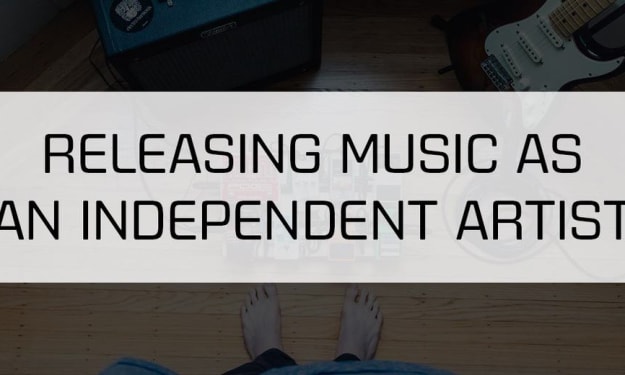THE GAME OF CHOICE
The growing in a single lane
The credit card sector takes advantage of consumers through modifications in terms, of hikes in interest rates, and accumulation of debt. Consumers rely on credit cards for various transactions, resulting in substantial profits but also causing a trillion-dollar debt. The credit card sector played a role in the financial crisis by promoting the refinancing of homes and the accumulation of more credit card debt. The government must establish stricter regulations to safeguard consumers and rectify the credit card sector. Providian Financial was an innovative company that extended credit to low-income individuals and high-risk borrowers. Providian devised tactics to encourage customers to maintain balances and make minimum payments to boost profits. The credit card sector swiftly adopted Providian's lucrative strategies, leading to widespread exploitation and deception. Intense competition in the sector eliminated annual fees but raised penalty fees to offset the loss. Credit card companies exploit consumers through concealed fees and complex pricing structures.
Customers often remain unaware of penalty fees and mistakenly believe they won't exceed due dates or credit limits. Disclosure statements are often convoluted and fail to accurately convey the actual costs involved. Interest rates and fees are hiked up by credit card companies for reasons unrelated to the consumer, leading to financial struggles. The lack of regulation and oversight has enabled credit card companies to impose exorbitant fees and interest rates. The practices of the credit card industry have preyed on vulnerable individuals while favoring the affluent. Those living on the edge financially find themselves ensnared, generating substantial profits for the system. Banks impose higher interest rates on borrowers to provide advantages to wealthy clients. The burst of the stock market was triggered by the bubble in consumer lending. Subprime lending was fueled by consumers refinancing credit card debt through mortgages. The inability of credit card holders to make payments has risen due to soaring unemployment rates. The influential banking lobby has thwarted the passage of credit card reform legislation. Various members of Congress, including the head of the Senate Banking Committee, have received substantial campaign contributions from the financial sector.
Attempts have been made to revamp credit card practices, with public outrage and calls for change on the rise. While the Credit Card Act had some positive effects, it fell short of fully safeguarding consumers. The law did make it more challenging for credit card companies to alter interest rates, but they still retain the ability to charge any rate they desire. There was an eight-month gap between the enactment of the law and its implementation, allowing banks to exploit the situation and raise rates. Credit card companies also slashed credit limits, impacting small business proprietors. The legislation did not provide safeguards for small enterprises. More than half of the American population encountered modifications to their credit cards. Financial institutions are increasing interest rates and terminating credit lines to address credit card losses. They are attempting to transfer the responsibility onto individuals who are still making payments. The credit card sector was mistreating its clients, prompting the need for new laws. Debit card usage is expanding rapidly, with consumers viewing them as a more secure option. Debit cards may incur higher costs compared to credit cards due to overdraft charges.
Banks introduced 'free' checking accounts but imposed overdraft fees to compensate for it. Relying on overdraft protection and payday loans can result in substantial fees and a debt cycle for consumers. The overdraft fees imposed by banks can carry steep annual interest rates and lead to unforeseen expenses. Although payday loans offer immediate cash, they often come with exorbitant fees and can ensnare borrowers in a debt cycle. Financial institutions deliberately conceal the workings of their overdraft system from clients. They consider overdraft protection as an informal courtesy for accounts in good standing. Overdraft protection is not covered by the Truth in Lending Act regulations. Banks have the liberty to impose any fee for overdraft protection. The fee system can lead to multiple charges in a single day, which is deemed exploitative. Banks prioritize processing high-value transactions first, resulting in more overdraft fees. Bank lobbyists defend this practice based on customer preferences, without any supporting survey data. Banks utilize fees as a means to demonstrate profitability.
Financial institutions are continually seeking methods to boost revenue without regulatory supervision. A new regulatory body is being proposed to oversee banks. We require a regulatory body that can adapt to changes within the industry. The proposed regulatory body would have authority over the entire industry. The government's determination of interest rates could negatively impact the free market economy. Despite the low-interest environment, credit card interest rates remain high, indicating potential manipulation by banks. The Obama administration is cautious about implementing drastic changes that could harm banks. Consumer access to loans, including credit cards, has become more challenging.
Many Americans find credit card debt to be unmanageable. Bankers often exploit loopholes to comply with regulations and generate profits. It is the responsibility of consumers to manage their finances. Additional discussions and information on credit products, credit unions, and fee traps are available. The upcoming episode of Frontline will delve into the Bernie Madoff scandal.
About the Creator
Isaac Ekow Anyidoho
A calm person with a cascading mind filled with ideas of my own and know that; I can make a difference with the support of people like you. Thank you.
Enjoyed the story? Support the Creator.
Subscribe for free to receive all their stories in your feed. You could also pledge your support or give them a one-off tip, letting them know you appreciate their work.






Comments
There are no comments for this story
Be the first to respond and start the conversation.